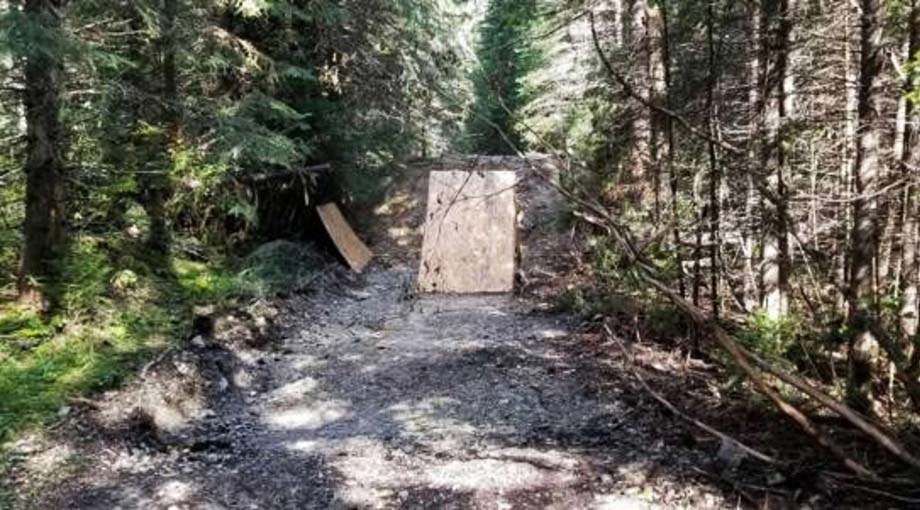
Kicking Horse Pass British Columbia - A man has been ordered to pay $21,600 in fines and
restitution for building an illegal bike jump in Yoho National Park, an extreme example of what one wilderness
protection group says is a recurring problem.
"It's not actually uncommon that we see these illegal trails, or structures, or people, creating their own
recreation infrastructure within the national parks, or even public land and provincial parks," said Katie
Morrison, executive director of the southern Alberta chapter of the Canadian Parks and Wilderness Society
(CPAWS).
"That type of activity, while it seems like not maybe a major impact, can definitely have impacts on places or the
park more broadly when it happens more broadly."
The incident happened back in 2019 while the man was working as an extra gang foreman for CP.
According to Parks Canada, he used a front-end loader to scrub out a section of old rail bed and build a bike jump in
an area running alongside the CP tracks near Kicking Horse Pass.
In doing so, Parks Canada says he damaged two archaeological sites.
The first was a section of rail grade that was part of the historic "Big Hill" rail route.
The second was a work camp that was used during construction of the Spiral Tunnels.
"This being a piece of the telling of that story of building the railroad, that's where the importance lies,"
said Paul Friesen, park warden supervisor for Lake Louise, Yoho, and Kootenay National Parks.
The man was charged with one count of destroying a natural object, one count of destroying a historic structure, and
one count of operating a vehicle off-highway.
Earlier this year, he was found guilty in a courtroom in Golden, B.C., on all three counts and ordered to pay $11,800
in fines and $9,800 in restitution.
Some of that money will be used to rehabilitate the site, said Friesen, and some will go into an environmental damages
fund that helps pay for projects that help "restore the natural environment and conserve
wildlife."
Stop Blazing Your Wwn Trail Say Officials
While it's rare to see someone build a full-on bike jump in a national park, Morrison said illegal or
"pirate" trails aren't uncommon.
Typically, it starts when someone begins going off-trail, and through repeated use a new route emerges.
Sometimes it's more intentional, said Morrison, and people will clear brush or cut down trees to form a clearer
path.
It may not seem like a big deal, but Morrison said travelling outside designated trails and areas can interfere with
wildlife corridors and habitats.
"If there's a lot of new trails or this type of pirate infrastructure being created, we could see damage or
impacts to wildlife habitat and corridors, to soil and vegetation, increased human-wildlife conflict, and really just
decreasing that national park value and the experience for everyone else," she said.
Informal trails were also cited as a concern in the latest Banff National Park Management Plan, which set a goal of
reducing priority informal trails by 20 percent compared with 2019 levels.
Friesen hopes the hefty fine delivered in this case will remind people to follow the rules while enjoying the national
parks.
"National parks are special places and they're protected for a reason. We're trying to leave these areas so that
they're maintained for future generations, for Canadians to come and visit and enjoy," he said.
Employee Ordered to be Reinstated
It isn't clear if the man responsible for the bike jump is still working for CPKC.
He was fired shortly after the bike jump was discovered, but his union grieved the dismissal, and he was ordered to be
reinstated in 2021.
An arbitrator cited his relative youth (he was 25 at the time) and honesty about his actions as mitigating
factors.
"The grievor is still a good prospect for the company and should be given another opportunity to prove himself and
put this fundamentally stupid incident behind him," wrote arbitrator John Moreau in his decision.
Paula Duhatschek.
(likely no image with original article)
(usually because it's been seen before)
provisions in Section 29 of the
Canadian Copyright Modernization Act.


